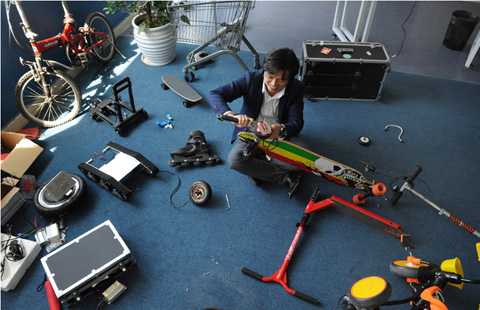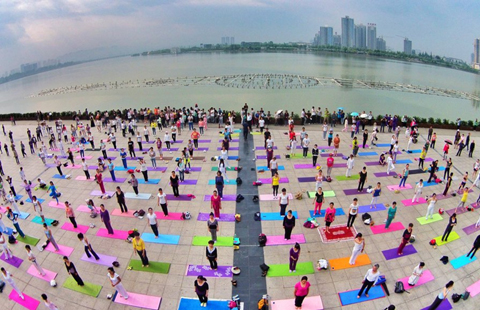First step taken to compile a civil code
Updated: 2015-05-14 07:43
By Zhang Yi(China Daily)
|
||||||||
The Supreme People's Court has formed a group to start compiling the nation's first civil code following repeated calls for the rule of law.
Xi Xiaoming, the court's vice-president, who was appointed deputy head of the group on Tuesday, said the civil code will serve as an important basis of judicial judgment, and the group will solicit opinions from a cross section of the public and legal professionals.
"The civil code will be the code of conduct for society and the general public, and it will provide the norms for trials," Xi said. "So we need to make sure the civil code is codified in a scientific way without any flaws in its logic, and it should be applicable in trials."
It is a common practice in countries all over the world to compile a civil code, which is a collection of laws designed to coordinate legal relationships and regulate the social behavior of individuals within a given society.
It includes a wide range of laws such as tort law, contract law, property law, and the law of inheritance.
China attempted to compile a civil code four times between 1954 and 1998.
The latest initiative stems from December 2002, when the standing committee of the National People's Congress began to review a draft of the civil code.
The committee postponed the review because making a comprehensive systematic civil code is impossible to complete when laws in some specific areas are absent.
It started to remedy that situation with the Property Law that was approved in March 2007, and enacted in October of the same year.
The initiative of codifying a civil code was raised for the fifth time at the fourth plenary session of the 18th Communist Party of China Central Committee in October 2014.
Zhang Dejiang, China's top legislator, reaffirmed the attempt during the sessions of the National People's Congress in March.
Wang Liming, vice-president of Renming University and a professor of civil law studies, said a country needs a comprehensive law to regulate its society and economy. Individual laws lack systematic and structural legal effect and would lower the efficiency of social activities.
"For example, the provision about the right of deposition in contract law and the one about regulation on ownership in property law are contradictory," Wang said.
"Therefore, a civil code should be in place to remove conflicts and keep the unity of the values pursued in civil law concepts."
zhang_yi@chinadaily.com.cn
(China Daily 05/14/2015 page3)

 Heads of state show you around Xi'an
Heads of state show you around Xi'an
 Cross dressing for Peking Opera
Cross dressing for Peking Opera
 Ten photos you don't wanna miss - May 13
Ten photos you don't wanna miss - May 13
 Passionate creatives with fresh ideas
Passionate creatives with fresh ideas
 Chinese buyers spend $116m at art auction in NY
Chinese buyers spend $116m at art auction in NY
 Portrait of a health conference
Portrait of a health conference
 China and Russia hold naval exercise
China and Russia hold naval exercise
 Ten photos you don't wanna miss - May 12
Ten photos you don't wanna miss - May 12
Most Viewed
Editor's Picks

|

|

|

|

|

|
Today's Top News
At least six die in Philadelphia train derailment, scores hurt
Cui: How to get a win-win in Asia
Animated Deng Xiaoping set to hit silver screen this week
Foreign reserves show a record decline in Q1
Amtrak train derails in Philadelphia, kills 5 people
Kerry off to China ahead of key talks
Beverage battle in China goes beyond colas
Volvo picks South Carolina for plant
US Weekly

|

|






